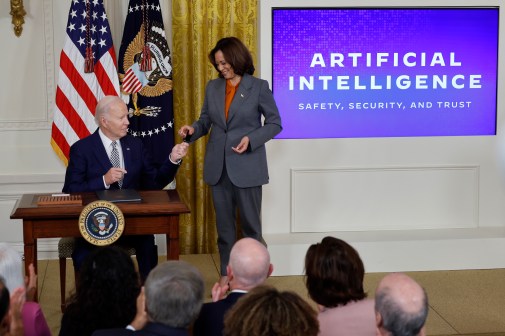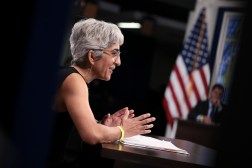Ag official wants to harvest data from high-tech farming
A drone that the Federal Aviation Administration just this week approved to deliver crop fertilizer could help the government collect crucial farming data.
Michael Valivullah, chief technology officer at the Agriculture Department’s National Agricultural Statistics Service, would like to take the data that these devices — and other farming implements, like high-tech combines, seed planters and moisture sensors — collect to help his office gather research on crops.
“We need to have good data to provide estimates that are reliable,” he told attendees of the MarkLogic’s Data Innovation Summit 2015, produced by FedScoop. “If the data is sloppy … the information that we provide is not going to be useful and we lose legitimacy.”
HIs unit publishes hundreds of reports a year, everything from cattle numbers to rice production. (Remember that 1983 movie Trading Places with Dan Aykroyd and Eddie Murphy? Valivullah’s agency puts out the orange crop report at the center of the film’s plot.) Currently, his agency collects data from farmers using forms, calling and sending a staffer in the field. It also goes through great pains to verify the data it receives.
“What I’m looking at is: How can we reduce the customer burden?” he said at the Thursday event. He added that the constant follow up with farmers can drain agency resources.
Looking ahead, Valivullah said his agency needs the tools to extract and cull the data — and the policy to back that up.
At the same time, Valivullah said his office is very careful about how it collects and protects its data. Fellow panelist Richard Young, CIO of USDA’s Foreign Agricultural Service, agreed that data security is a constant concern. Young said he’s still haunted by a data breech that occurred at his office about five years ago.
“It’s all been cleaned up now, but of course it’s always in the back of my mind since I’ve taken the job,” Young said.
Young’s agency deals with agricultural trade in more than 150 nations. And whenever he works with other countries, he’s constantly thinking about how to securely move and store data. And he said whenever he has a staffer traveling to China or elsewhere, he wipes that staffer’s device.
“When you have a security breach, you become like paranoid,” he said.






